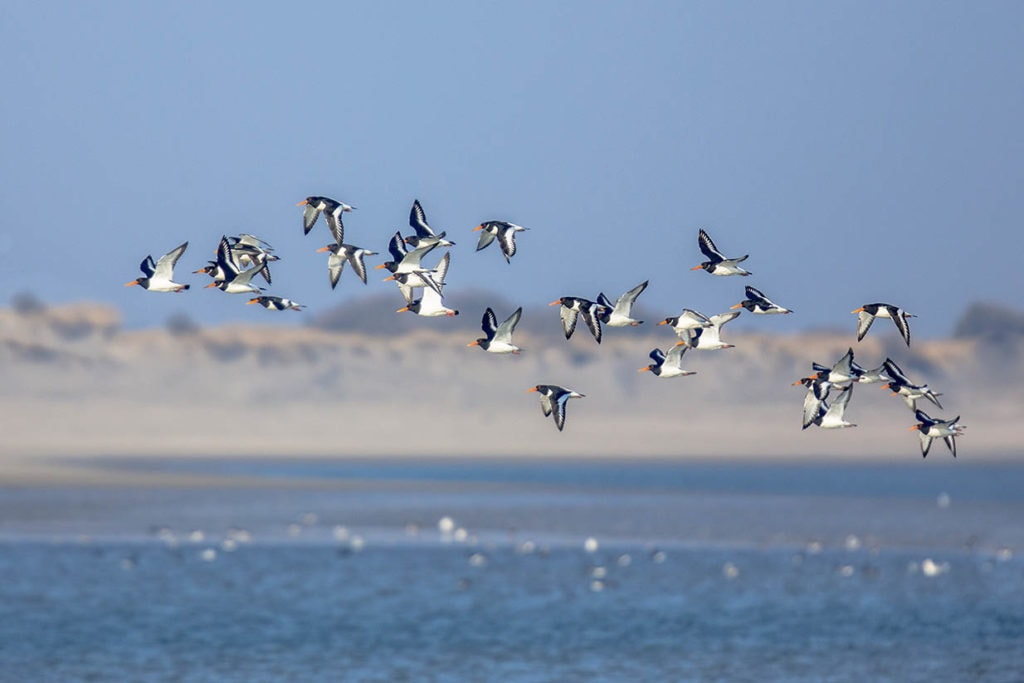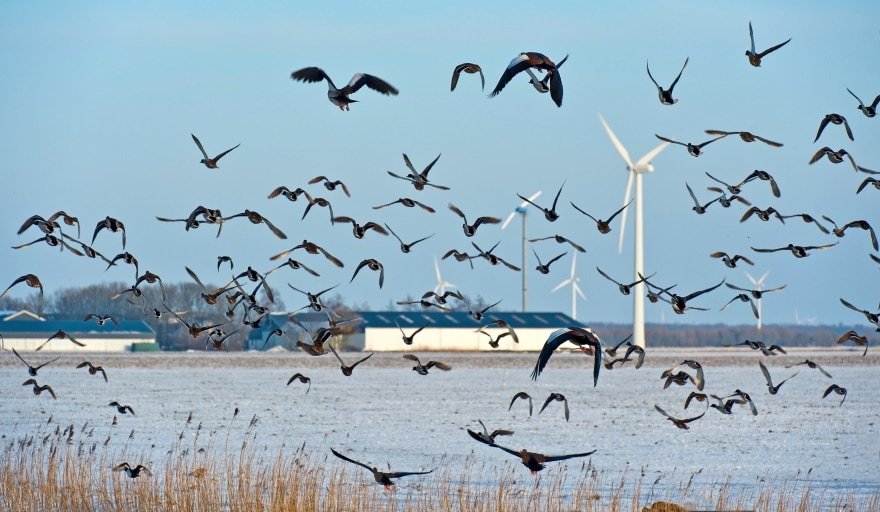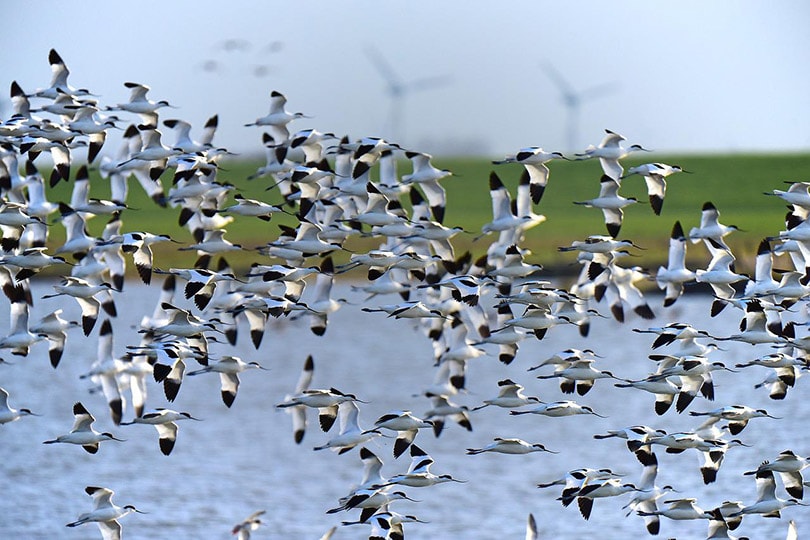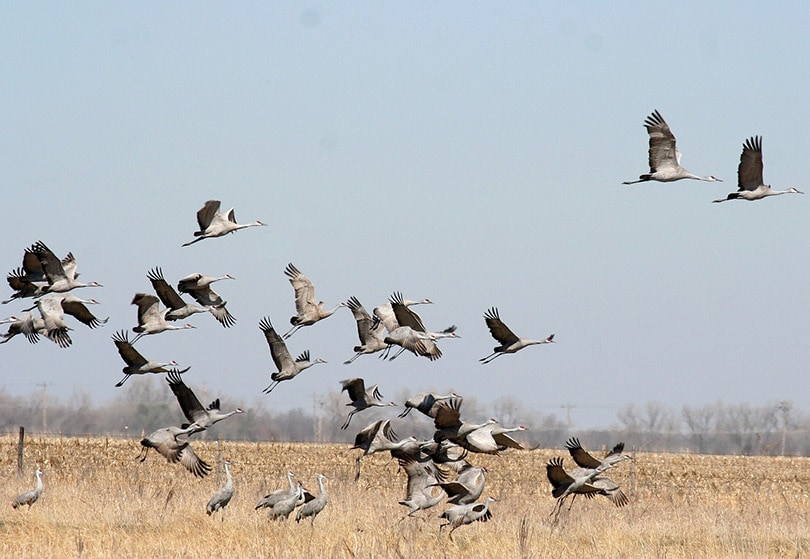Why Do Birds Fly South for the Winter? What The Science Says
Last Updated on

More than half of North America’s birds fly south for winter or migrate, but migration is a broad term. Some may only fly a relatively short distance to move to a slightly more temperate climate, while others will fly hundreds of miles across the open sea to escape the harsh winter conditions. Strictly speaking, the birds are not trying to escape the cold weather—they fly south to find richer food sources and locate better nesting sites.

Avoiding the Cold
Avoiding the cold is not the main reason for migration for most birds. Some birds, like hummingbirds, can cope perfectly well with freezing temperatures, but they still migrate. Some birds, on the other hand, do fly south because they are ill-equipped to deal with cold temperatures.

Better Nesting Sites
As winter approaches, trees are bare and there is very little foliage. There are also fewer daylight hours, and this combination of factors means that birds struggle to find, build, and maintain good nesting sites. By traveling south to warmer climes, they find lush foliage, and they enjoy more hours of daylight.
More Food
Less foliage means less food for birds that rely on plants and bushes for protein. Those who survive primarily on insects will also experience a limited supply of food. Warmer temperatures not only mean more berries and other foraging foods but more insects as well. There might be more competition for these insects, but their abundance means that they will be able to feed themselves and their young.

Migration Distance
Not all birds migrate. Some stay in the same location throughout the year and survive on slim pickings of scant insects and minimal foliage. These are considered non-migratory birds.
- Short-distance migrants may travel a few miles from higher altitudes to lower altitudes. The difference in temperature may be minimal, but there will be more greenery and a larger population of insects and food.
- Medium-distance migrants may fly across state lines and potentially cover several hundred miles during their flight south.
- Long-distance migrants can cover thousands of miles and cross into different continents. For example,
- Arctic Terns make a round trip of more than 20,000 miles in a year during their migratory pattern.
How Do Birds Know When to Migrate?
It might seem obvious that birds migrate as the weather gets colder, but the answer is much more complicated, and we still don’t have a complete understanding of what exactly triggers birds to migrate. It is likely a combination of factors, including fewer hours of daylight, a decrease in insect availability, and something in their genes that basically tells them it is time to fly south.

The Hazards
Short-distance migrants should find their annual trip relatively easy because they only fly a few miles from one area to another. Those that cover several thousand miles have to undertake a physically arduous and very difficult trip, often over difficult terrain and landscape. Birds that fly across the open sea face a whole other set of perils. Even the existence of large buildings can pose a serious threat to birds flying past the area, and many will have to fly past larger populations of potential predators that are waiting for them.

In Conclusion
Birds fly south for winter not only to avoid the cold temperatures and harsh conditions of winter but to find more food and to ensure that they have adequate nesting opportunities. While this annual journey might mean a flight of a few miles for some species, it can mean flying several thousand miles over open seas for long-distance migrants—a journey that puts them at risk of being predated and carries a host of other potential hazards.
Featured Image Credit: Rudmer Zwerver, Shutterstock
About the Author Robert Sparks
Robert’s obsession with all things optical started early in life, when his optician father would bring home prototypes for Robert to play with. Nowadays, Robert is dedicated to helping others find the right optics for their needs. His hobbies include astronomy, astrophysics, and model building. Originally from Newark, NJ, he resides in Santa Fe, New Mexico, where the nighttime skies are filled with glittering stars.
Related Articles:
What Is the Best Binocular Magnification for Hunting? Optical Features Explained
How to Clean a Refractor Telescope: Step-by-Step Guide
How to Clean a Telescope Eyepiece: Step-by-Step Guide
How to Clean a Rifle Scope: 8 Expert Tips
Monocular vs Telescope: Differences Explained (With Pictures)
What Is a Monocular Used For? 8 Common Functions
How to Clean a Telescope Mirror: 8 Expert Tips
Brightfield vs Phase Contrast Microscopy: The Differences Explained
